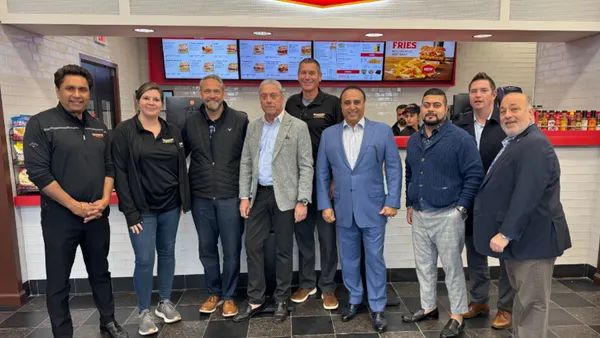Dive Brief:
- OpenTable has partnered with Upserve, a restaurant management platform, to leverage its point-of-sale system and share data and guest insights, according to a press release.
- The partnership will enable servers to have diner information and preferences in real-time to help those employees personalize service during meal time.
- The integration will also provide shift prep reports from Upserve to improve staff schedules, automatic check creation for guests once they arrive to the host stand, and real-time table status for hosts.
Dive Insight:
The entire industry is shifting toward personalization as a way to differentiate in a saturated sea of sameness, as well as in response to Amazon-driven consumer expectations. McDonald's and Sonic are two major examples of chains that are prioritizing personalized service through AI partnerships, for example.
Restaurant tech partners are also searching for optimized personalization through acquisitions and partnerships. Food delivery company Just Eat acquired Practi, a point-of-sale and restaurant management systems company, while Booking Holdings recently acquired Venga, a guest management platform. The latter acquisition allows restaurants using OpenTable to create a customer profile and mine that data to better understand their preferences. Coupled with its Upserve partnership, OpenTable is moving toward becoming a one-stop-shop for restaurants alongside a few other tech companies in the consolidating space.
Point-of-sale integration, in particular, is a highly effective way to get personal, as it provides a high-level view of the customer journey from the time they make their reservation through OpenTable to the time they cash out. Further, Upserve's ability to communicate customer preferences to servers in real-time is a good way to cultivate loyalty and gain traffic in a competitive environment.
Traffic is hardly the only challenge affecting the restaurant industry. The labor market continues to pose a challenge with wage increases and low unemployment rates hindering recruitment and retention efforts. This partnership’s ability to better anticipate guest counts can, in theory at least, improve staffing schedules, while the real-time table status can free up hosts' time for more important service opportunities.
Because of this move toward personalization, service and labor efficiencies, consolidation and partnerships are likely to continue. To date, OpenTable has integrations with 10 point-of-sale systems.








